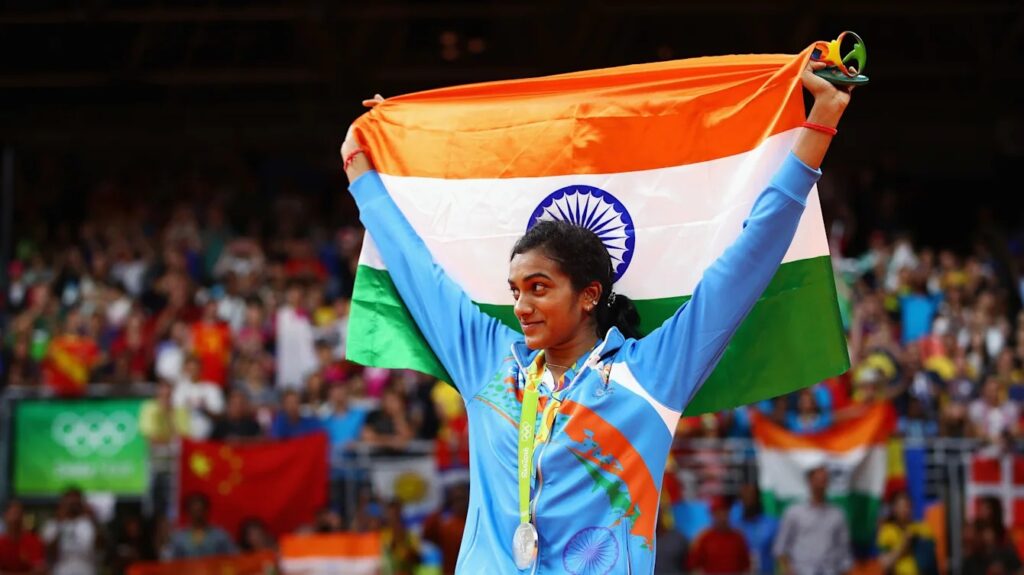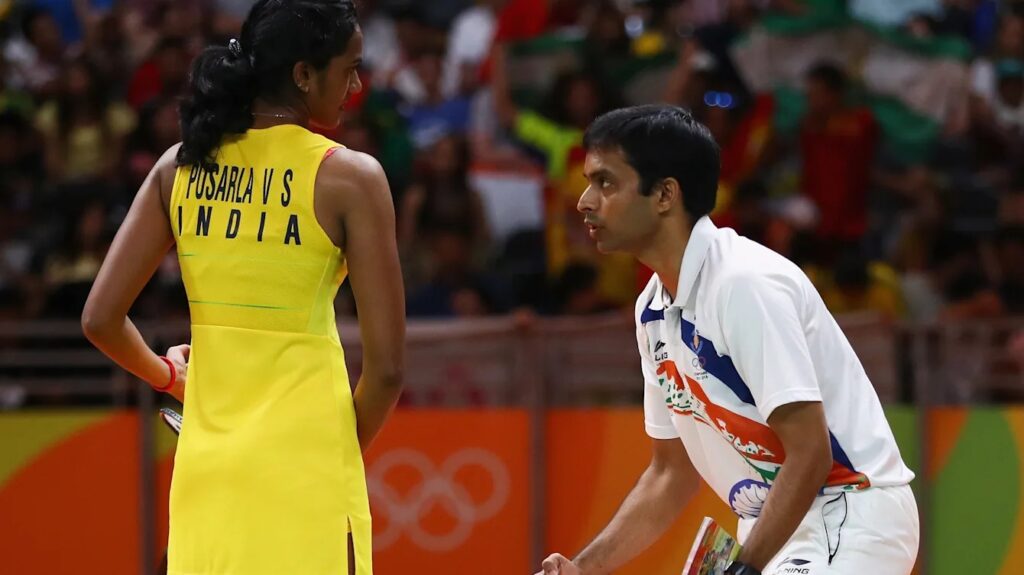
Brutally early training sessions are a leitmotif to athletics success stories, especially in the case of PV Sindhu, who would start her day at 4:30am in the lead-up to the Rio. Her father, a tall, broad-shouldered former national volleyball player, used to drive her 40 kilometres from their home in Secunderabad to Pullela Gopichand’s academy – which Sindhu joined when she was seven – every morning, and back home again, until she began to stay at the academy hostel.
Thereafter, they had a house nearby, a result of her earnings in the post-Rio context.
Hyderabad was a hotbed of competitive players, with Saina Nehwal the standout star. But even in that company, it was clear to Gopichand that Sindhu was a champion in the making. In 2010, when Sindhu was just 15, Gopichand told India Today that she was one to watch. “A lithe and lanky person,” he said, “is sure to go places in badminton.” Defeat in the Olympic final to Carolina Marin, the World No.1, in a tense, draining final, only whetted Sindhu’s appetite. She has since gone on to win a world championship gold and a second Olympic medal in Tokyo.
By the time Sindhu and Gopi reached Rio, Sindhu was in top physical shape. But this was the Olympics, the biggest sports spectacle of all and it was not only about being in good physical condition. Dealing with pressure, nervousness and controlling the mind were the key ingredients to success. Sindhu, understandably, was nervous. This was her first Olympics, and in her final, must-win group match, she started poorly against Michelle Li of Canada, losing the first game. Years of hard work were now riding on the second game, and Gopi, sitting in her corner, kept trying to free her mind.
She did play a good second game, but was down 1-4 at the start of the third. Her Olympic dream was in the balance and Gopi, yet again, was staring at a barren Games. A medal had eluded him in 2000 when he was in the prime of his career, and it was threatening to do so yet again. “I was perhaps the only Indian who went to [Karnam] Malleswari’s room the next morning after she won the medal in Sydney,” he one said. “I wanted to own an Olympic medal, and this was my way of doing it. It was essential to who I was.” Yes, he had a medal with Saina in London, but this was special.
Down in the third game, Sindhu had to dig deep. For months, she had been told to play one particular shot, and for months, she had refused to oblige. In practice, it worked but in match situations, she just wasn’t able to get it going. For some reason, it didn’t happen. And now, all of a sudden in Rio, in what was in Sindhu’s words “the moment it all changed”, the backhand cross-court defensive block came out. Balance, poise, positioning – it was a perfect stroke. As perfect as one could hit it. Even Gopi was surprised. Something indeed had happened, and Li was soon shown the door 21-17 in the third game. For Gopi and Sindhu, the quest for a medal was underway.
“That’s the stroke we had kept practising for months ahead of the Olympics,” said Gopi with a content smile. “It was one weakness I was determined to overcome, and I pushed Sindhu to play it for hours and hours. It would take opponents by surprise and if they did not attack there, knowing she would play the defensive block, I was confident Sindhu would be in control. If you watch the semi-final in Rio, [Nozomi] Okuhara tried it and bang – Sindhu played the stroke for a winner. Not once more did Okuhara attack her backhand, and Sindhu dominated the match. That’s what we had trained for.”
Ahead of Sindhu’s semi-final, Gopi hardly slept. Rather, he paced the room and kept thinking. In his words, “I couldn’t let the medal slip away.”

“When I got up in the morning, Gopi Sir was all ready to go out and train,” recalled Sindhu, while smiling at Gopi, who by now was starting to look a little sheepish. “He had showered and was waiting. I had this feeling he hadn’t slept. While he never said that to me, I could sense he was not his usual self.
“And when I won the semi-final, I turned to Gopi Sir and saw tears rolling down his cheeks. While I was delighted at making the final, to see Gopi Sir cry made me understand the enormity of the achievement.”
And for Gopi, this was his moment of reckoning. Sydney, or rather the pain of Sydney, was finally behind him. Indian badminton had an Olympic finalist for the first time, and Gopi had finally achieved his dream. “Yes, the job wasn’t done yet,” said Gopi. “But at one level, for me, it was done. Maybe I was wrong, because I did feel satisfied. May be if I hadn’t, we could have planned the final differently.
“The tears were genuine. Sindhu could now leave the sport a decade later with an Olympic silver medal. It was hers forever, and there was nothing left to chance anymore. All those months of effort had paid off, and I was seriously happy.”
The duo had done all sorts of things in Rio. They constructed a net with towels in their room in the Olympic village and practised. Practised in the morning, and again late at night. They had simply given it their all. They had left nothing to chance, from the time in Hyderabad when Gopi had taken away Sindhu’s phone and stopped her from eating ice-cream and biriyani.
Gopi was the guru, Sindhu his protégé, and the Olympic medal their moksha.
Also Read: “The Quest to be Perfect on an Imperfect day”: Abhinav Bindra




